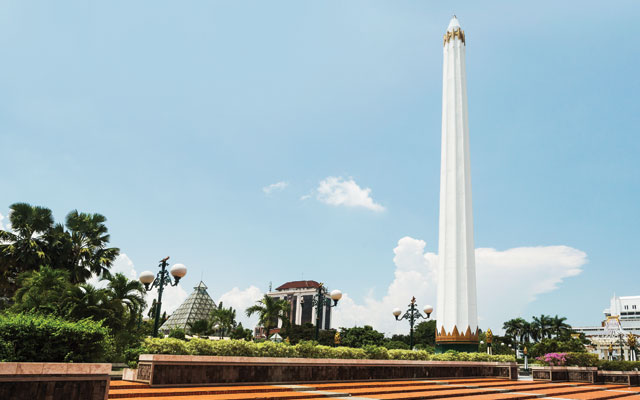Playing host to a global UN meeting has put Surabaya in the spotlight, bringing attention to its varied event venues and new business hotels
Greater Surabaya, Indonesia’s second biggest metropolitan city in Indonesia after Greater Jakarta, is fast catching up with the country’s capital city and popular tourism destination Bali in becoming a serious contender for business and association events.

Although Surabaya is listed as one of 16 destinations the Indonesian government has qualified for business events and is promoting to the international community of event organisers, the city’s infrastructure is recognised as being better than most of the other destinations besides Jakarta and Bali.
Tien Gunarti, director of sales and marketing with Grand City Convention and Exhibition, told TTGassociations that the city has risen in prominence for meetings and events because of a tenacious mayor who “has been very active in her efforts to grab international events”.
“Surabaya city government is eager to make the city a business event destination. The UN’s Third Preparatory Committee Meeting for Habitat III last year, for example, was originally planned for Jakarta but was eventually relocated to Surabaya, thanks to mayor Tri Rismaharini’s perseverance,” remarked Tien.
The mayor’s determination is shared by Grand City Convention and Exhibition which is bent on being recognised as a serious venue for international meetings.
“We have become an ICCA member, which isn’t easy to attain. To qualify, we must be active in attracting international and domestic meetings, especially those conducted by associations,” she said.
The venue has played host to notable international gatherings such as the Third Preparatory Committee Meeting for Habitat III and the World Aquaculture Society: Asia Pacific Aquaculture conference in April 2016 which was attended by 1,000 delegates.
The venue continues on its roll with the Hospital Expo this year and a conference and exhibition by the Indonesia Society of Dermatology and Venereology next year for 1,500 delegates.
“With continued government support, we are optimistic that Surabaya will shine as a destination for business events,” said Tien.
Susilowani Daud, president director of Pacto Convex, a specialised conference and event organiser in Indonesia, too, feels that Surabaya has many supportive attributes.
“Surabaya has a good facility to support large events and there are enough hotel rooms across all (star-ratings and price points), venues and tourist attractions in the city and the surroundings (to add value to event programmes),” opined Susilowani.
In fact, Surabaya has more than one venue that can cater to large-scale gatherings. Besides Grand City Convention and Exhibition which has capacity for up to 3,500 seats theatre-style and an exhibition hall spanning more than 4,000m2, Surabaya also offers the Dyandra Convention Center which can take a 5,000-pax banquet and the Jatim Expo International which dangles nearly 10,000m2 of exhibition space.
Additionally, in line with the growing meeting and exhibition businesses, most hotels in the city are today fitted with meeting facilities.
Susilowani noted that air access into Surabaya is in the city’s favour, with plenty of domestic and direct regional flights available to bring delegates in for meetings.
However, having the hardware is not enough to ensure success, warned Susilowani, who has urged the regional government to do more to place Surabaya on the world map for business events and association meetings.
According to Susilowani, one of the things that the regional government needs to do is to better understand how the business is run and the protocol that applies to bidding and hosting an international meeting.
She also expects the government and private sector to bid more actively for meetings, if not for global gatherings then at least for regional ones.
Endah Retnowati, director of sales and marketing of Bumi Surabaya City Resort, has also suggested that destination marketing messages play up Surabaya’s strategic location that makes it the gateway to numerous star attractions in East Java.
Erny Kusmastuti, general manager of Fairfield by Marriott Surabaya, has observed that attractions within and around a city are considered when an association is choosing a host destination.
“For instance, there are many attractions in (nearby) Malang and its surrounding areas. Access during weekends is terrible though, due to heavy traffic. With the opening of new hotels in Malang, some (smaller) meeting groups are skipping Surabaya for (a full programme in) Malang,” shared Erny.
With that in mind, Endah urged the East Java government to “keep up their good work in developing and promoting point of interests” in Surabaya to keep business events in the city.











